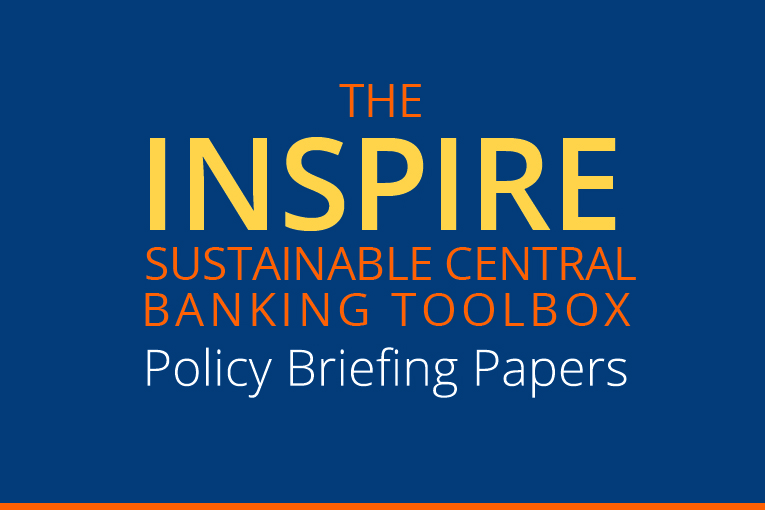Climate-related systemic risks and macroprudential policy

Download
INSPIRE Sustainable Central Banking Toolbox – Policy Briefing No.14
Climate change has a clear systemic dimension: its consequences are not only widespread across all sectors and regions, but potential concentrations, spillovers and interlinkages within the financial system risk further amplifying its economic and financial impacts.
The systemic nature of climate change for financial stability suggests the need for a macroprudential response that goes beyond a (microprudential) focus on individual firms and ensures a consistent approach across the financial system.
This paper discusses the different macroprudential options available to financial regulators and supervisors to address climate-related systemic risks, as well as the challenges in implementation.
Key messages
- Climate-related risks build up and embed irreversible financial risks in the financial system although the exact outcomes, time horizon and future pathways are uncertain.
- Central banks and financial supervisors must therefore rapidly develop sound risk management practices adapted to a context in which policy decisions rely on imperfect data and high uncertainty.
- Existing macroprudential policy toolkits can be deployed now to address climate-related systemic risks with some possible adaptations to reflect the unique features of climate-related risks, such as:
- the long time horizon over which they may materialise;
- their strong dependency on the speed and direction of the low-carbon transition; and
- the specific data and forward-looking measurement methodologies required to manage them.
- One possible instrument that can be tailored to address systemic climate-related financial risks is a ‘systemic risk buffer’, to increase the resilience of the financial system to climate-related shocks and contribute to mitigating the build-up of future risks.
- A second instrument is measures to limit exposure concentrations, which could target and thereby mitigate sources of risk where they are greatest.
- Although the case for a macroprudential response to climate-related systemic risks is clear, there are several challenges when it comes to its operationalisation and implementation, e.g. modelling complexity and uncertainty and partial data coverage. However, this is not a reason for inaction as the risks will only increase.
- A progressive deployment of policies could still ensure timely action against the cumulation of financial stability risk while minimising mission creep and unintended consequences.
This paper is part of the INSPIRE Sustainable Central Banking Toolbox, which is designed to support central bankers and financial supervisors in calibrating monetary, prudential and other instruments in accordance with sustainability goals as they address the ramifications of climate change and other environmental challenges. The papers have been written and peer-reviewed by leading experts from academia, think tanks and central banks and are based on cutting-edge research, drawing from best practice in central banking and supervision.

